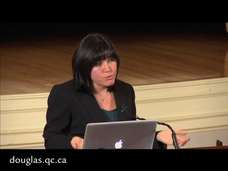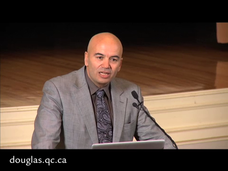
Mental health disorders don’t only affect adults. In fact, it is estimated that up to 20 percent of Canadian children and youth may be affected. These ailments can alter development and functioning at home, at school, with peers and in the community; they are most disabling of all disorders worldwide. The good news is early diagnosis and treatment can make a life-long difference.
These are the most common mental health problems in children:
- Anxiety Disorders
- Attention Deficit/Hyperactivity Disorder (ADHD)
- Depression
- Conduct Disorders
- Psychosis
- Sleep Disorders
- Eating Disorders
How do I know if my child has a mental health disorder?
A change in a child’s behaviour may be a sign that he or she needs help with a mental health problem. It can sometimes be difficult to decide if she/he is acting ‘appropriately’ for his or her age or if there is something amiss.Below is a list of unusual behaviours that a child or teen may exhibit during normal development. However if these characteristics are intense, persists or are inappropriate for the child’s age, they may be a sign of an underlying mental health problem.
Unusual behaviours may include:
- getting significantly lower marks in school
- avoiding friends and family
- having frequent outbursts of anger and rage
- losing his or her appetite
- having difficulty sleeping
- rebelling
- not doing the things he or she used to enjoy
- worrying constantly
- experiencing frequent mood swings
- not concerned with his or her appearance
- obsessed with his or her weight
- lacking energy or motivation
- hitting or bullying other children
- attempting to injure him or her self
Mini-Psych School videos
| Can children suffer from depression? (2010) | ADHD children: when should you take action? (2010) |
Watch other Mini-Psych School lectures.
What to do if you suspect your child has a mental health disorder
- Talk to your child about your concerns. Avoid a confrontational approach. Listen carefully to what he or she has to say
- Visit your family doctor and discuss the issue. The new behaviour may have a physical cause
- Ask schoolteachers, care providers, friends and family if they have noticed changes in your child
- Meet with a school counselor, who may be able to refer your child to counseling services
Need help ?
All requests to evaluate a child under the age of 18 must first go to the mental health team in your CSSS.
The professional team at the CSSS will evaluate the level of services required for your child. If needed, the CSSS will refer your child to the Douglas child psychiatry outpatient clinic. A child psychiatrist at the Douglas will evaluate the child and decide if he/she should be treated at the Douglas or not.
In case of an emergency
Go to the nearest Emergency room that offers services to children (0-17 year olds). The Douglas Institute doesn't have a children's emergency room. In Montreal, you have to go to Ste-Justine Hospital or Montreal Children's Hospital.
Other community organizations can help you manage emergency situations:
Other community organizations can be helpful if your teenager refuses to cooperate.




